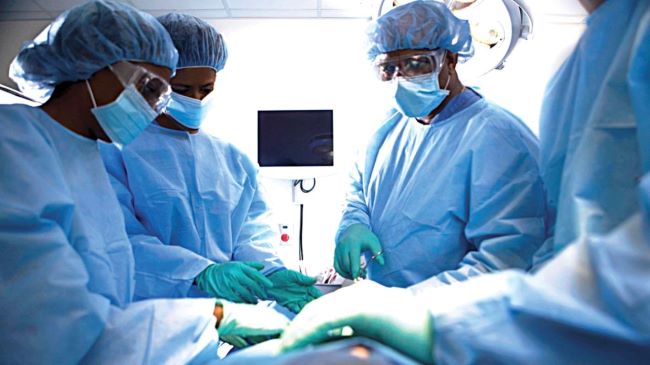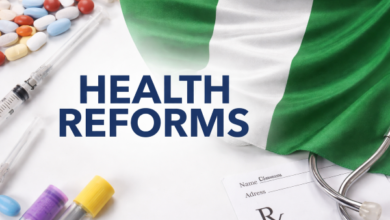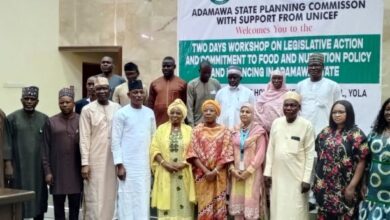Key insights from Nigeria’s Health sector review
 A News Analysis by Folasade Akpan
A News Analysis by Folasade Akpan
Stakeholders gathered in Abuja for the first Nigeria Health Sector-Wide Joint Annual Review (JAR) to assess performance and progress while charting a new path toward achieving established goals.
Held from Nov. 6 to 8, the JAR provided a platform for representatives from all levels of government, the private sector, and development partners to assess programme performance, evaluate resource distribution, and review outcomes.
The aim was to promote multi-sectoral coordination and establish clear priorities for the upcoming year, ensuring alignment with national health goals.
JAR, a key mechanism for advancing the Sector-Wide Approach (SWAp), aligns with the priorities of the Nigerian Health Sector Strategic Renewal Investment Initiative (NSHRII).
It focuses on evaluating achievements in implementation provisions and processes.
The three-day event featured reflections, announcements, the launch of initiatives, reports, and the inauguration of a task force.
The Coordinating Minister of Health and Social Welfare, Prof. Muhammad Pate, provided a performance scorecard for the past year.
Africa faces 5.3M health professional shortage by 2030, WHO warns
He stated that the sector had met 31 out of 41 Key Performance Indicators (KPIs) under Presidential Commitments by the third quarter of 2024, indicating that Nigeria was on track to surpass its annual targets.
“Under the Primary Healthcare Centres (PHC) 2.0 reform, we have emphasised equity by allocating financial and human resources across over 8,000 PHCs,” Pate noted.
He revealed direct facility disbursements totaling N45 billion sent to states and the mobilisation of over $3 billion in complementary funding, with $2.1 billion confirmed.
The minister also reported that, in collaboration with state governments, over 2,600 healthcare facilities were in advanced stages of revitalisation, with an additional 2,000 facilities earmarked for upgrades.
Addressing workforce challenges caused by brain drain, Pate said 40,000 frontline health workers had been trained out of a target of 120,000.
“The federal government’s commitment to improving health outcomes has yielded tangible results.
“Data from the Demographic and Health Survey (DHS) revealed a 16.7 per cent reduction in under-five mortality between 2018 and 2023.
“It also revealed a 40 per cent decline in diarrheal diseases, 24 per cent reduction in tuberculosis cases and 12 per cent decrease in HIV prevalence.”
Pate acknowledged persistent challenges, including healthcare affordability, low immunisation rates, high malnutrition levels, and stunting rates.
He emphasised the need for renewed investment and coordinated action.
With maternal mortality remaining a major concern, 174 high-burden local governments responsible for 50 per cent of maternal deaths were identified.
To address this, the Maternal and Newborn Mortality Reduction Initiative (MAMII) was launched.
MAMII focuses on high-burden areas where women face barriers such as lack of awareness, spousal consent, and financial challenges.
Pate also announced a nationwide free Caesarean Section (C-Section) initiative.
This programme aims to ensure free maternal care for eligible women in high-risk areas, improving access to safe and skilled maternal health services.
The review saw the launch of the 2024 Climate Health Vulnerability and Adaptation Assessment Report, a step toward addressing the health impacts of climate change in Nigeria.
Pate reiterated the government’s commitment to building resilient health systems and called on all stakeholders to contribute.
The inauguration of an Expert Group/Taskforce on a mini Nigeria Demographic and Health Survey (NDHS) further demonstrated the sector’s commitment to transparency and frequent data updates,” he said.
This annual survey aims to fill the gaps between the national five-year NDHS cycles, he added.
Imo Governor Hope Uzodinma, who spoke on behalf of the Nigerian Governors’ Forum (NGF), called for collaboration to address state-specific challenges while maintaining a shared focus on improving national health outcomes.
The NGF reaffirmed its commitment to building a more resilient and inclusive healthcare system.
Development partners also lauded Nigeria’s efforts with Dr Ndiame Diop, Country Director of the World Bank Group, announcing $750 million in concessional financing to strengthen intergovernmental healthcare collaboration.
In his remarks, Dr Walter Mulombo, WHO Country Representative, encouraged Nigeria to use the JAR outcomes to advance primary care and align with the Lusaka Agenda for Action.
Furthermore, Dr Omokhudu Idogho, Managing Director of the Society for Family Health, praised the free C-Section initiative.
He stressed the importance of antenatal care and community outreach to ensure women accessed healthcare facilities.
He highlighted the need to address delays in recognising danger signs, reaching facilities, and receiving timely care.
He further emphasised the role of the private sector in expanding healthcare access, noting that a coordinated effort between public and private sectors could reduce maternal mortality by up to 70 per cent.
Analysts, who spoke on the JAR summit, said it offered a unique opportunity to review the sector’s achievements, address challenges and foster stronger partnerships.
Stakeholders, however, expressed optimism that the gathering would drive new interventions and improve the health of all Nigerians.
News Agency of Nigeria (NAN)












